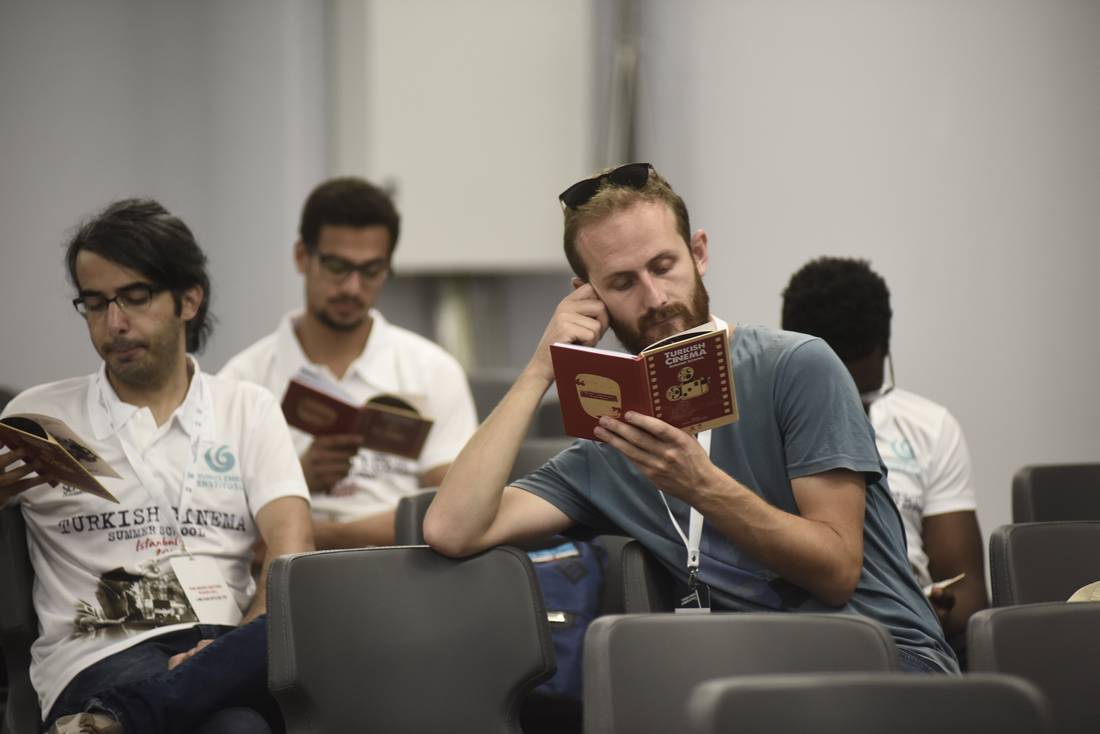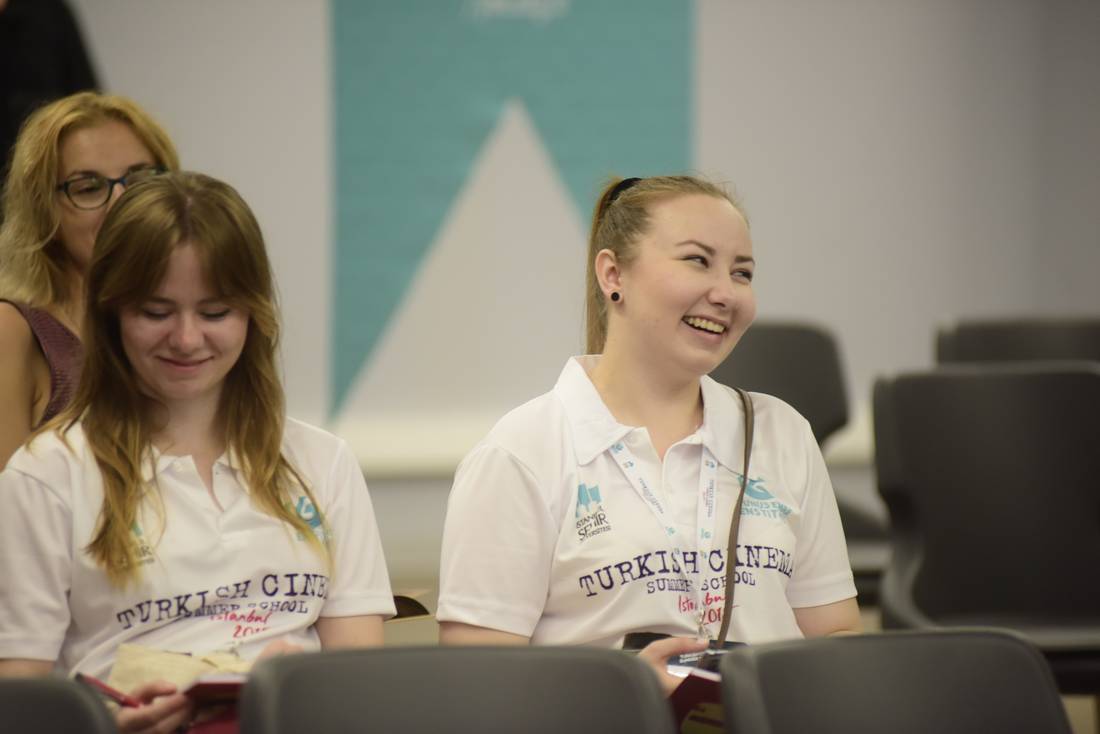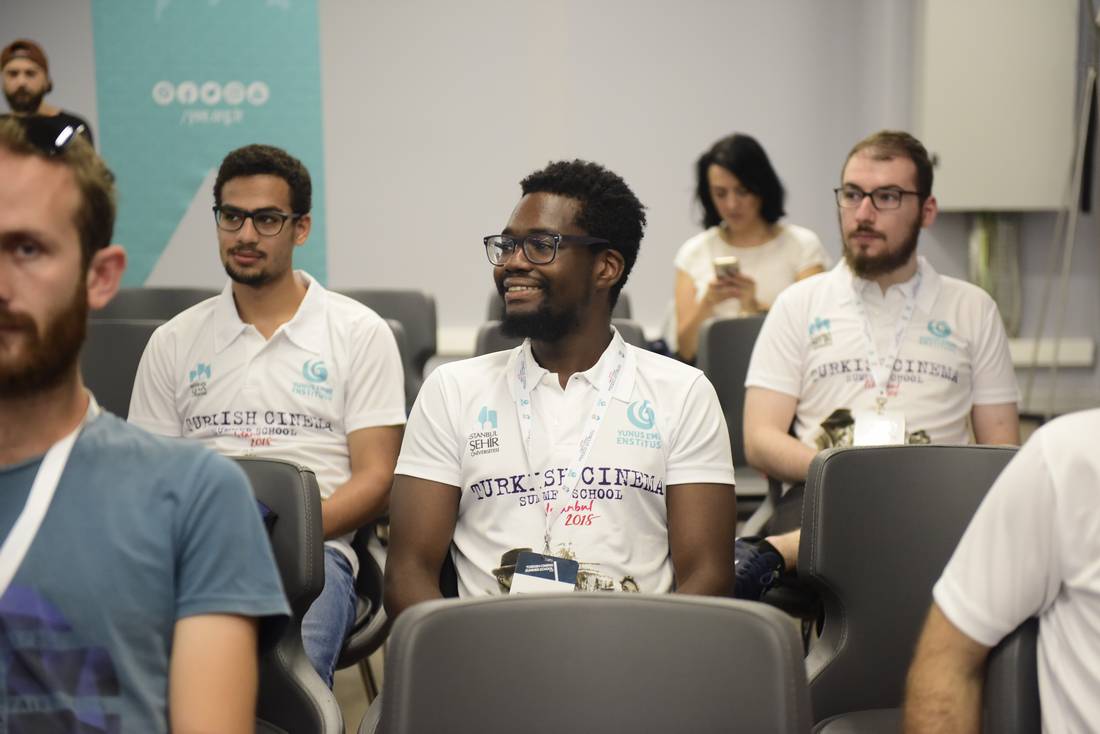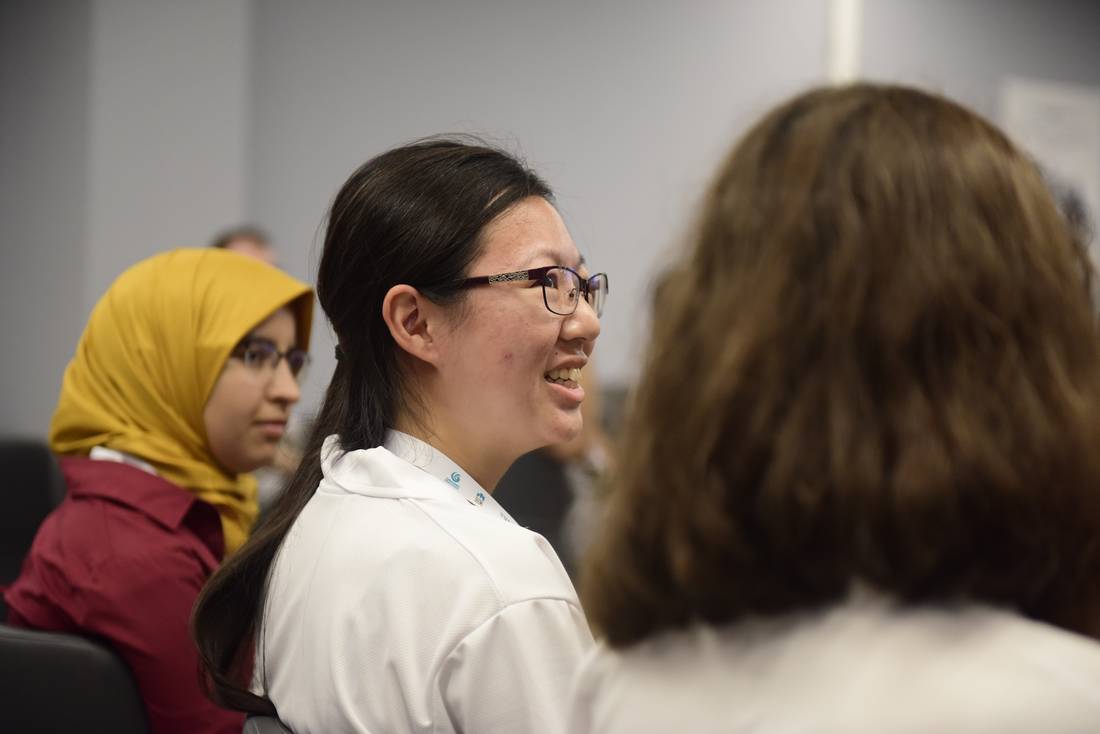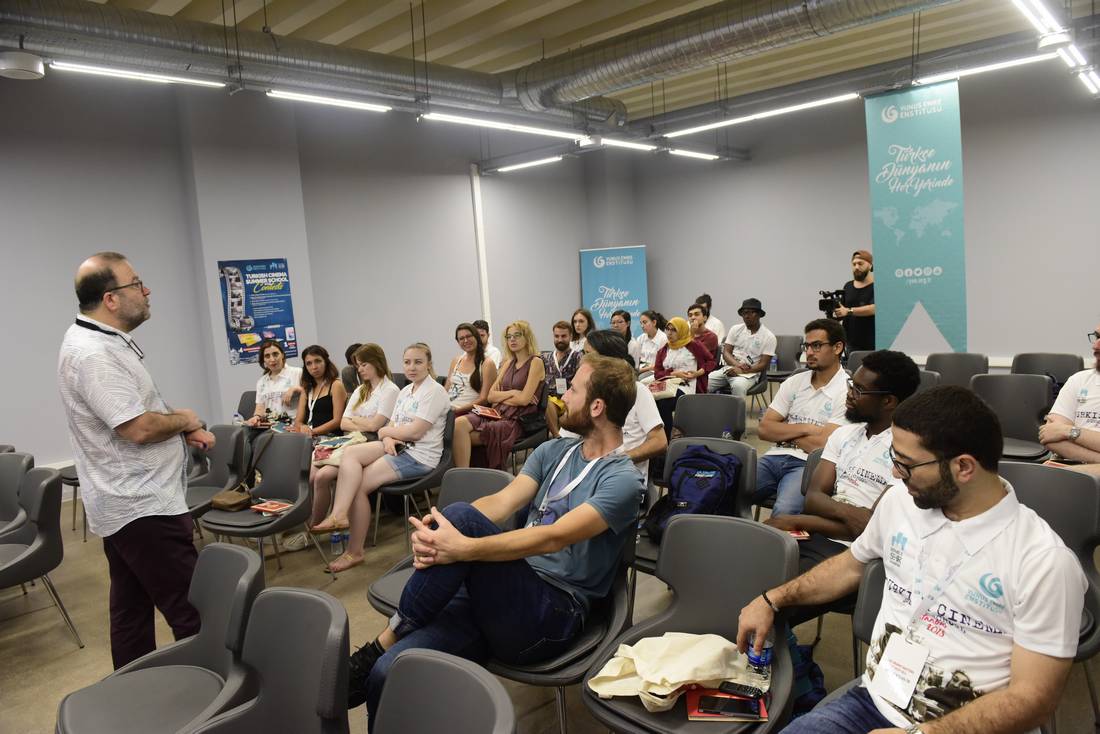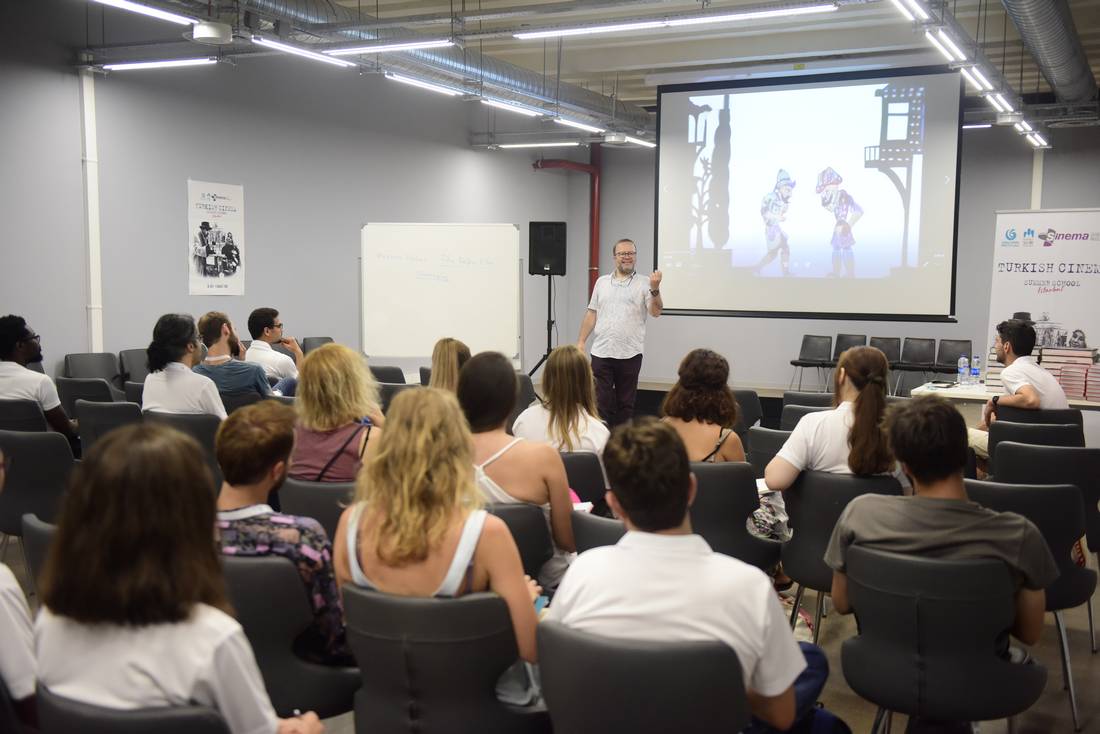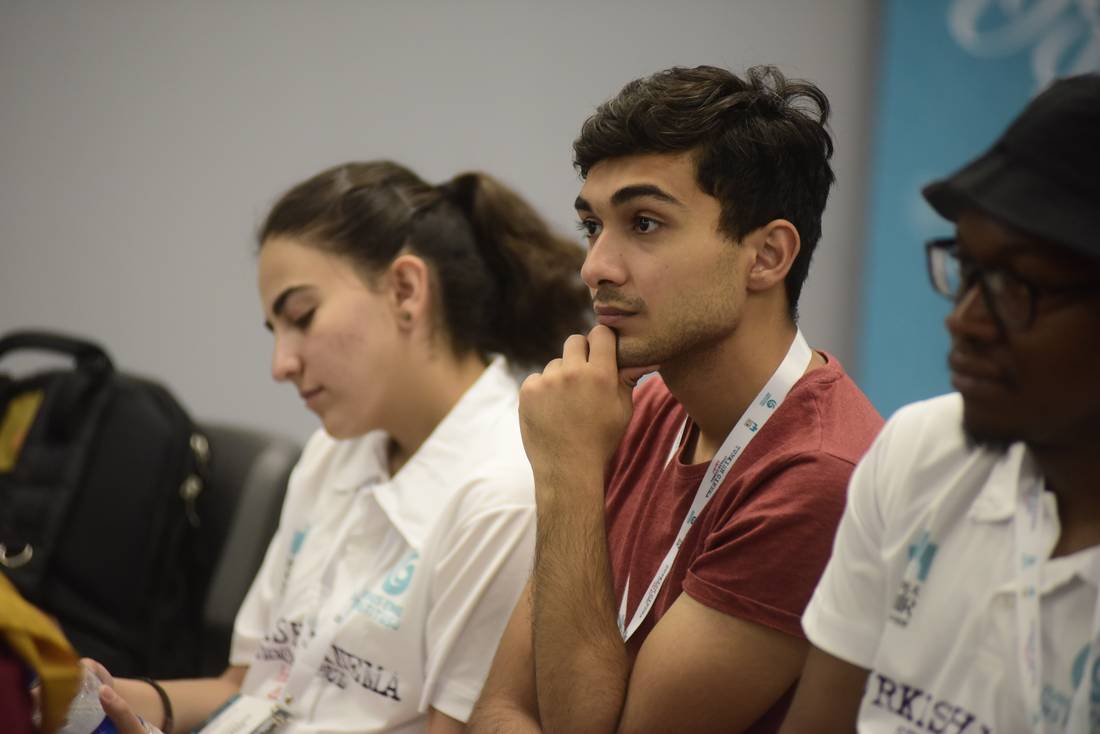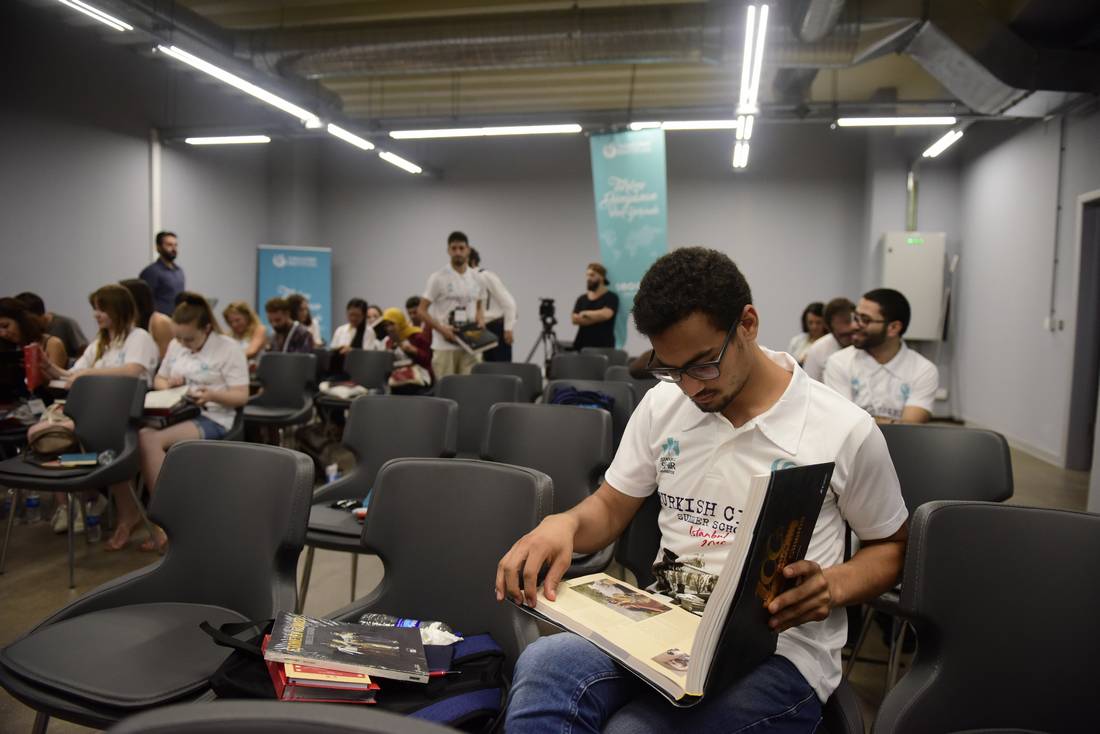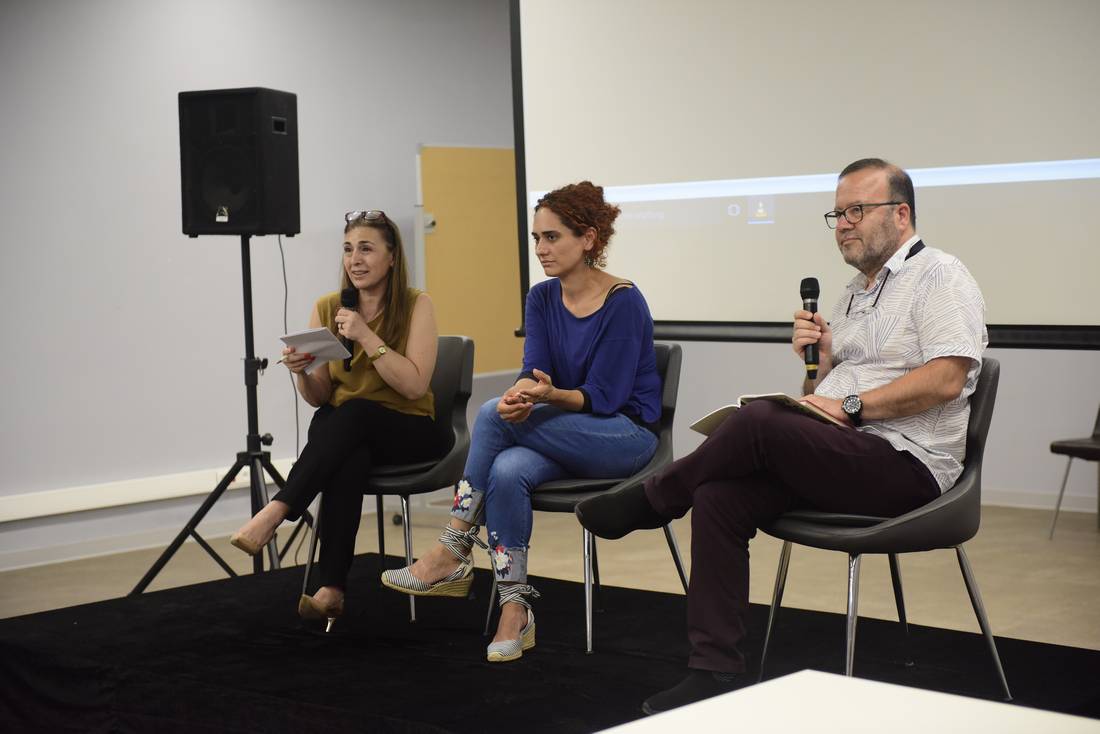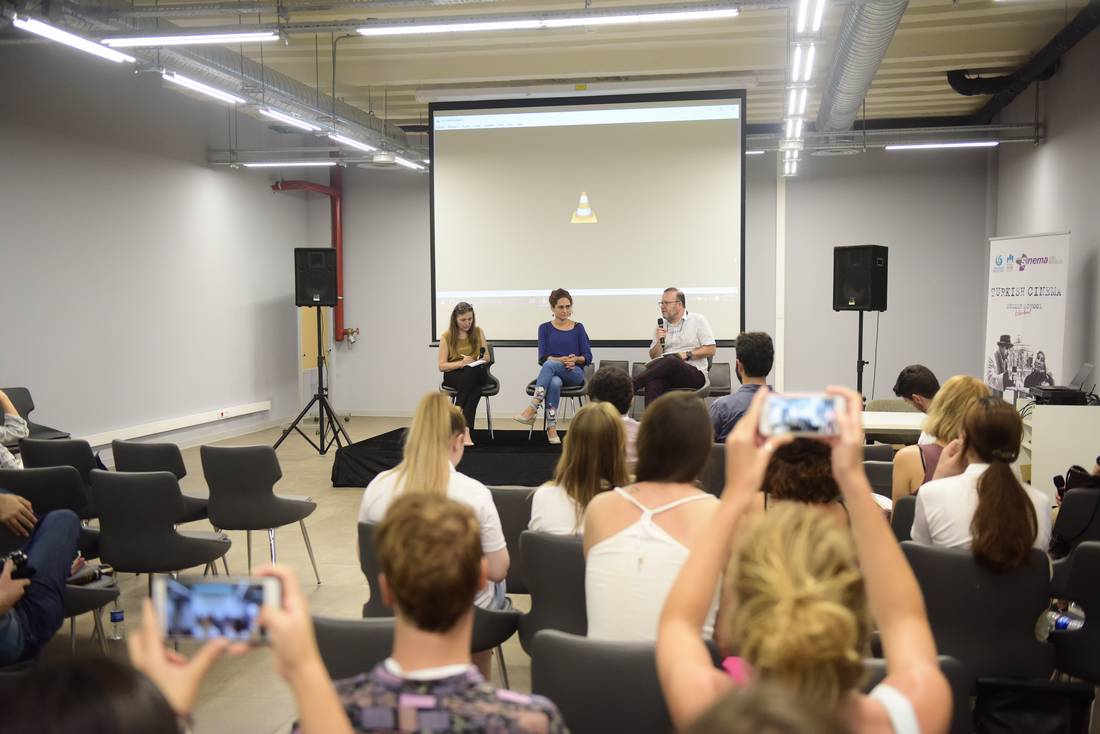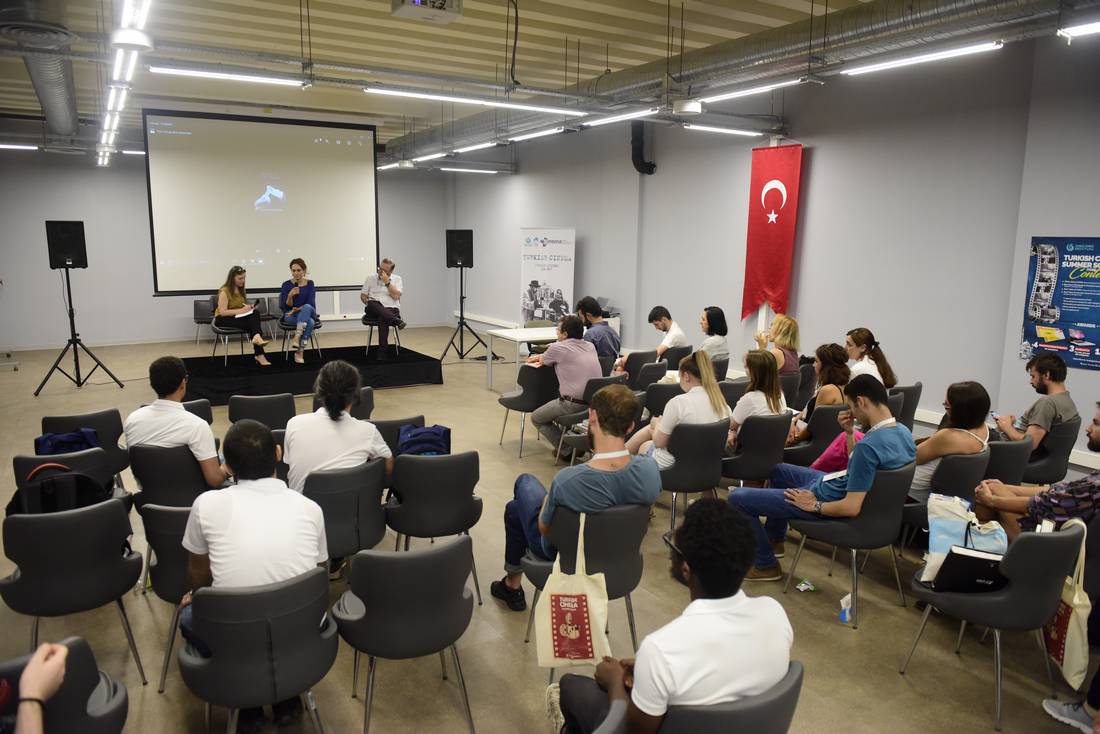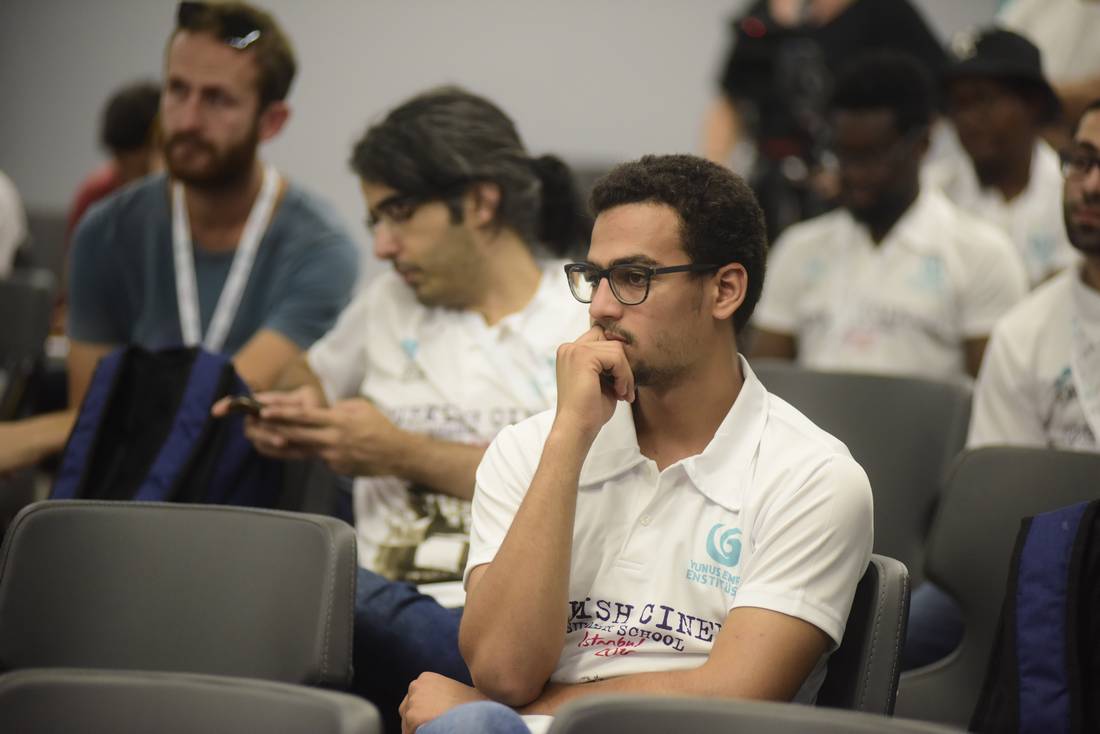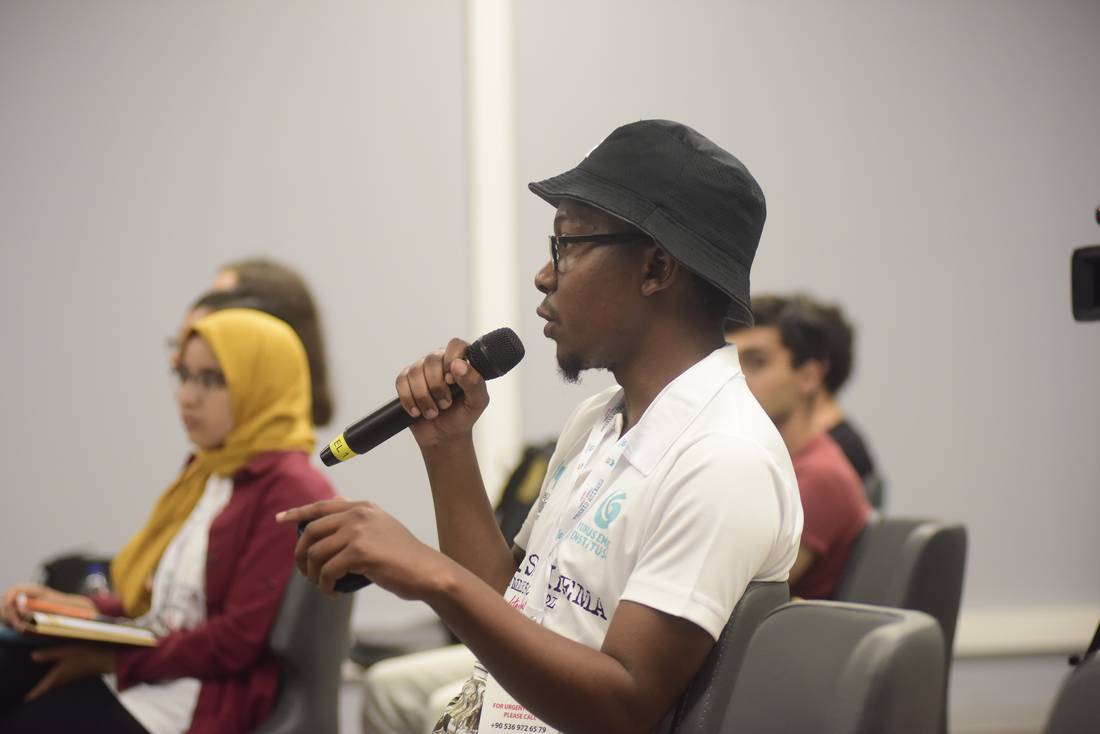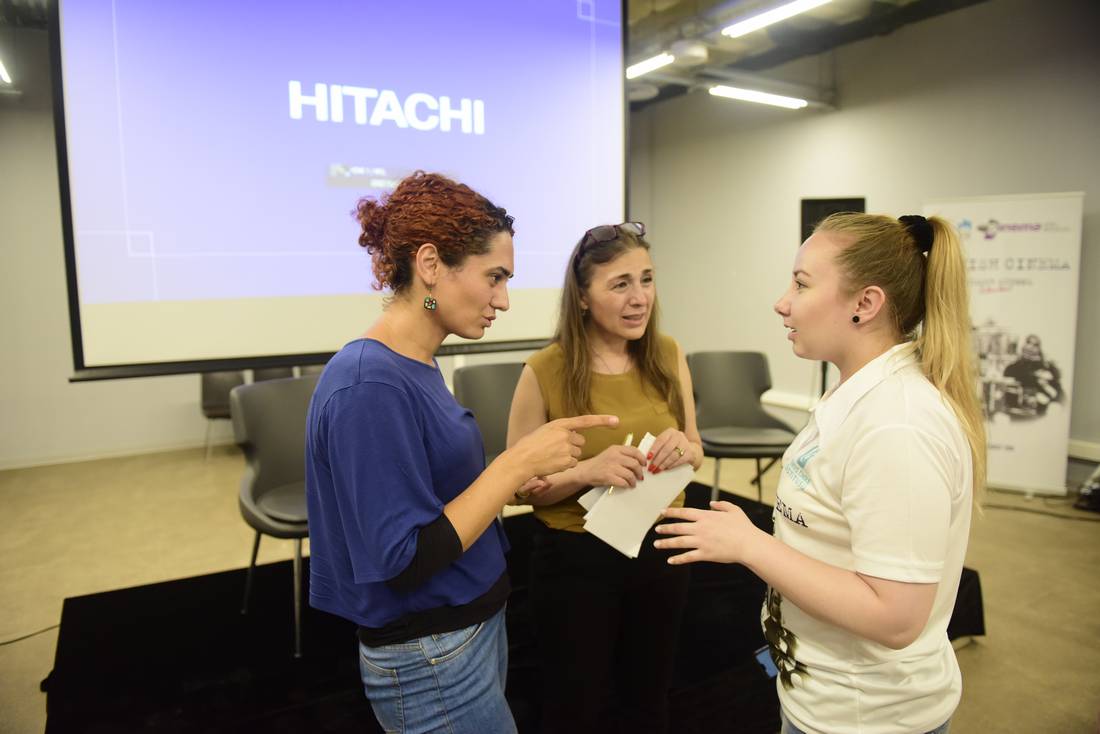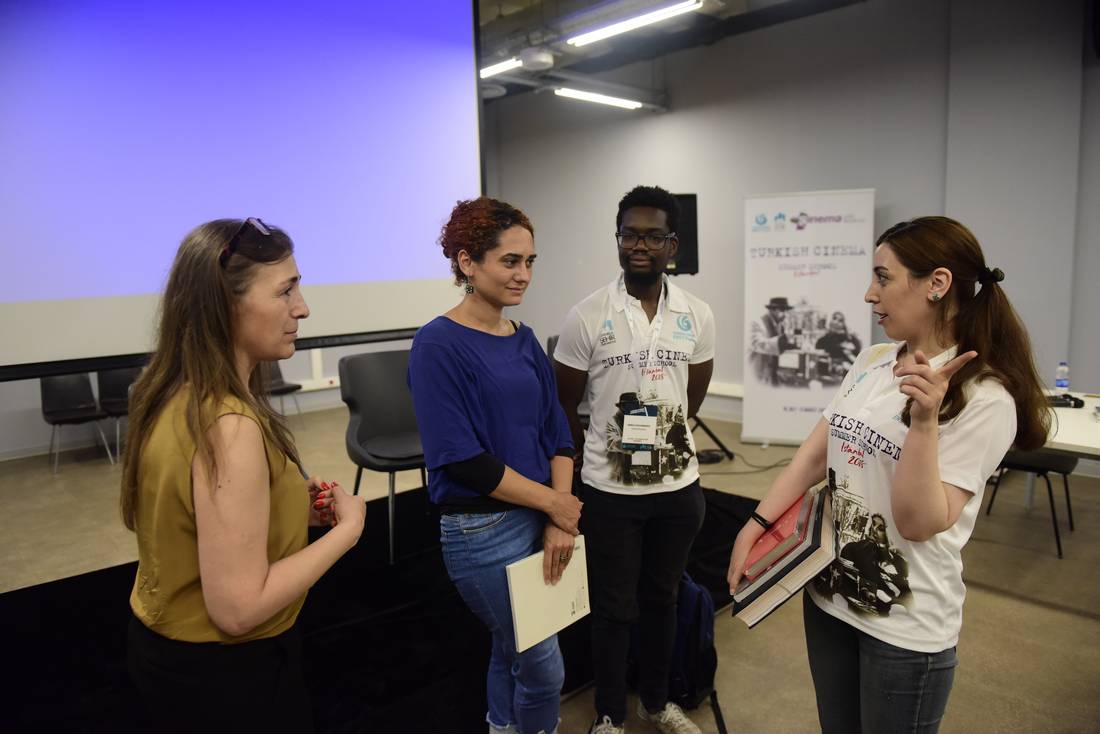Turkish Summer School organized by Yunus Emre Institute for the 9th consecutive year in 2018 played host to 1000 international students from 118 countries in Turkey. The programme which is hosted by 30 universities in 28 cities around Turkey, allows participants to travel city by city and blend their Turkish knowledge with Anatolian culture.
Turkish Cinema Summer School was designed as a new project within the Turkish Summer School’s programs by the Yunus Emre Institute. Hosting participants from the field of cinema, it is a programme conducted in cooperation with Istanbul Şehir University with the support of the General Directorate of Cinema. The first of its kind, the 2018 Turkish Cinema Summer School programme hosted 23 young movie makers from 20 different countries around the world and lasted for 2 weeks.
The first lecture of the Turkish Cinema Summer School, Cinema in Turkey, was given on July 30th by Prof. Nezih Erdoğan the Head of Department for Cinema and Televison at Istanbul Şehir University. Talking about the evolutionary stages of Turkish cinema with the participants, from the past to its present, Erdoğan addressed the building stones of Turkish cinema from different aspects, from Yeşilçam (a common nickname for the nostalgic Turkish film industry) to today’s cinema.
In the first movie screening and discussion session, the participants watched and assessed the movie Cold of Kalandar, directed by Mustafa Kara. Participating as a guest in the programme, the movie’s producer Nermin Aytekin answered the various questions of the participants, spanning from filmmaking adventure to behind-the-scenes details.
Future Movie Makers meet Turkish Cinema
The programme prepared with the support of Istanbul Şehir University’s Department of Cinema and Television, saw important academic members give lectures in the field of cinema. Adventures of cinema in Turkey were handled from several aspects: from the arrival of cinema to the Ottomans, to modern Turkish television series, and from leading women movie makers to documentary cinema.
Besides presentations by academicians, the scope of the summer school programme provided participants the opportunity to meet with several directors, scenarists, actor and actresses, producers and movie critics, as well as watching important works of Turkish cinema. During the summer school, various trips were organised, including visits to Mimar Sinan University’s Department of Cinema and Television, the Türker İnanoğlu Cinema Foundation and Theater Museum, Turkish Cinema Studies and SEKA Film Studios.
Moreover, one day of Turkish Cinema Summer School was spent on a trip to the city of Gaziantep, which is a part of UNESCO’s Creative Cities Network. This was incorporated into the programme to share the rich and ancient cultural background of Gaziantep with the young movie makers. They visited the Culinary Arts Training Center and experienced the rich process and tastes of Turkish cuisine. The trip also took them to the Zeugma Mosaic Museum, which is among one of the world’s important museums in terms of both its structural features, as well as the historic and artistic works inside.
The most exciting part of the Turkish Cinema Summer School was a meeting and in- conversation-with event held on the 2nd of August. Participants got a chance to get together with two of the most famous names of Yeşilçam, Türkan Şoray and Ediz Hun, at Istanbul Şehir University’s Dragos Campus. As well as hearing the masters’ experiences and memories about Turkish Cinema, the young movie makers got the opportunity to watch an open air motion picture, in which the two legendary names had acted alongside each other in the leading roles.
With Turkish Cinema Summer School, Yunus Emre Institute aims to attract foreign business environments and academics to discover and relate to the Turkish film and cinema industry in its original environment. It intends to promote relations with foreign students and increase the attention towards the Turkish cinema sector within cinema environments. It aims to not only diversify its summer schools project, but also to enhance international cooperation among universities.


